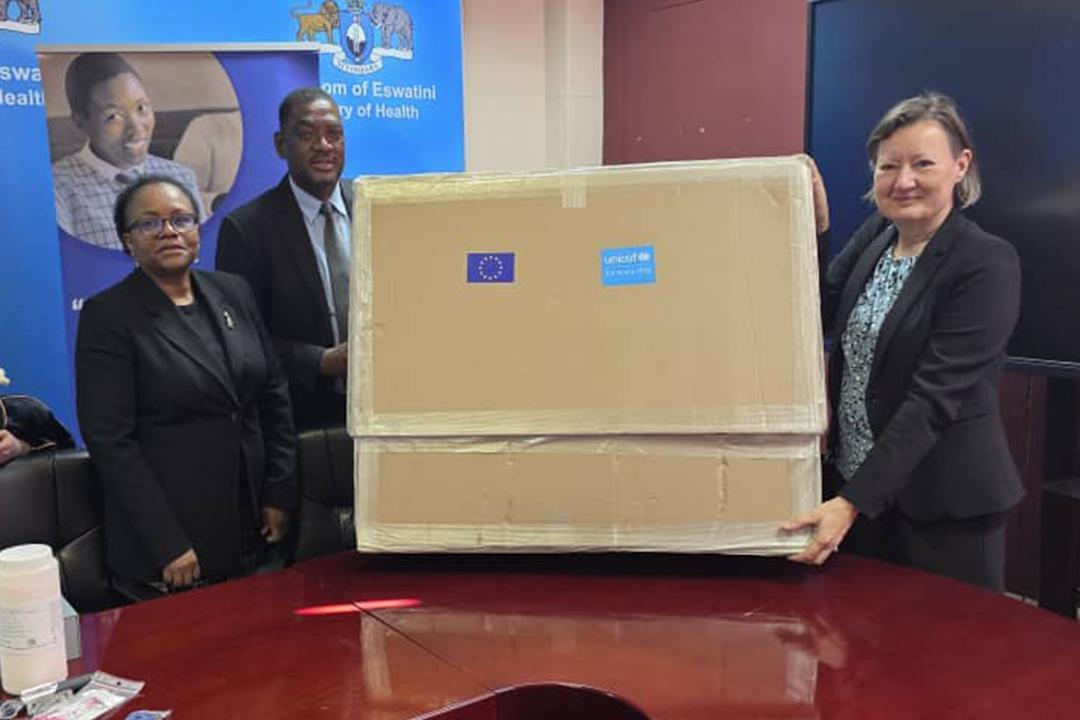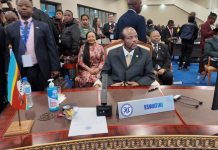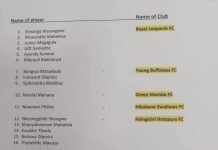Africa-Press – Eswatini. The Ministry of Health has strengthened its efforts to ensure inclusivity in education, following the handover of assistive devices donated through the support of UNICEF and the European Union. The items were officially received today by the Director of Health Services, Dr. Velephi Okello.
The assistive devices include eight customised wheelchairs, nine prescription glasses, and 50 audio and hearing devices, which will be distributed to identified learners across the country. These provisions form part of the collaborative Disability Screening and Support Initiative, which aims to ensure that children with disabilities are given equal opportunities to learn, participate, and thrive.
Speaking during the handover, the Acting Principal Secretary for Health emphasised that the donation is a key milestone in advancing the Schools Health Programme, which screens learners for health and disability challenges to provide timely interventions.
“This aligns with our mandate to screen learners and ensure timely interventions,” the Acting PS said. “The initiative also aligns with Eswatini’s commitment to inclusive education, guaranteeing that children with disabilities are not excluded from mainstream learning environments. We are deeply grateful to UNICEF and the European Union for their unwavering support, both financially and technically. Your commitment to the well-being of our learners has made this project possible and impactful.”
The support is expected to improve the day-to-day experiences of many children, enabling them to overcome barriers that often limit their educational participation. For example, learners with impaired mobility will now have access to customised wheelchairs that meet their specific needs, while those with visual and hearing difficulties will benefit from glasses and audio devices tailored to their conditions.
UNICEF and the European Union have been long-standing partners of the Kingdom of Eswatini, supporting health, education, and child protection programmes. Their joint intervention reflects a shared vision of creating environments where all children, regardless of ability, can fulfil their potential.
The Ministry of Health reaffirmed its commitment to ensuring that no child is left behind, stressing that initiatives such as this not only restore dignity but also open pathways to better academic performance and improved quality of life.
For More News And Analysis About Eswatini Follow Africa-Press







